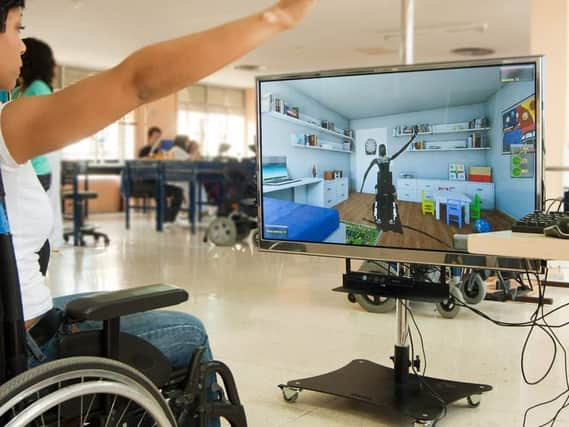Stoke Mandeville Spinal Research to fund for three innovative new research projects


The Charity has committed to funding three studies into spinal cord injury to help further research into the condition.
The grants are split into three, which will help to investigate:
Advertisement
Advertisement
-'Cingulotomy', which will help people with spinal injuries overcome chronic pain from nerve damage
-Minimising UTI infections which will help doctors maintain the effectiveness of antibiotics in people with spinal injuries
-A study into neuropathic pain of people who have spinal chord injuries and how this can be prevented.
The grants are broken down as follows
1. £128,000
This study will be led by St George's Hospital, London and involving the NCIS Stoke Mandeville and the London Spinal Injury Cord Centre, Stanmore. This project will look at the effectiveness of a procedure called 'cingulotomy' that can pinpoint the area of the brain that can help hinder overactive nerve pathways responsible for regulating chronic pain in patients.
Advertisement
Advertisement
Many people every year are devastated by accidents or other conditions that leave them paralysed and facing a multitude of new challenges, with many experiencing complications from their injuries.
Central neuropathic pain (CNP), also known as nerve pain, affects 7% of the UK population. More than 50% of those with spinal cord injury describe it as worse than the injury itself. CNP persistently interferes with day- to-day living, affecting peoples’ sleep, mental health and wellbeing, as well as their ability to work, study or maintain any kind of social or family life. Once it develops it remains for life, and often does not respond to treatment, hence the need to find therapeutic options for people living with this condition.
Commenting on being awarded funding for the project, Mr Erlick Pereira, Consultant Neurosurgeon at St George's University Hospital and lead researcher for the project, said: “Neuropathic pain is very common following spinal cord injury, with significant long-term impact on an individual’s quality of life, functional ability and mental health, as well as increased utilisation of health care resources. For some patients, this condition is resistant to existing treatments for CNP and has a devastating effect on their lives and the lives
of their families. We are grateful to Spinal Research and Stoke Mandeville Spinal Research for the pledge to fund this project over the next three years and hope that the research will identify cingulotomy as a safe and effective option for patients and provide them with relief.”
2. £70,000
Advertisement
Advertisement
Led by the Royal National Orthopaedic Hospital, Stanmore, researchers will study people with SCI (often prone to UTIs) who will administer antibiotic treatment in the comfort of their home by instilling a solution via bladder catheters. The aim is to prevent the onset of urinary tract infections and help to minimise the risk of antibiotic resistance, so people can continue to go work, study and maintain a good social and family life.
Commenting on the project, lead researcher Dr Sarah Knight, said: “We are very excited to be starting our Stoke Mandeville Spinal Research funded project. Urinary tract infections are a major factor in reducing the quality of life for people living with spinal cord injury. We hope that bladder instillation of the antibiotic gentamicin will prevent recurrent infections without the need for oral antibiotics and their associated side effects.”
3. £9,000
Led by the University of Glasgow, and involving patients at the National Spinal Injuries Centre, Stoke Mandeville, and the National Spinal Injuries Centre, Glasgow, this 2-year collaborative study hopes to be able to identify those patients who will go on to develop chronic neuropathic pain (associated with SCI patients) in the future, and facilitate the development of preventative treatment as a result.
The study will focus on how brain activity related to CNP in people with SCI develops over time and will use EEG to measure this activity as early as possible following their injury, before they start to develop neuropathic pain, which is believed to be a consequence of a gradual build-up of hyperexcitability in the nerves, eventually leading to this debilitating condition.
Advertisement
Advertisement
Commenting on their funding announcement, SMSR Trustee Chair, Richard Tolkien, said: “We are delighted to fund this important piece of research which aims to predict and prevent debilitating pain that can often be a complication of spinal cord injury. We hope it will make a big difference to improving the everyday lives of people living with spinal cord injury.”
"The award emerged from the first round of calls in SMSR’s recently established grants programme. This programme marks a big step in our approach towards developing research that leads the way in SCI and that has the potential to lead to brand new treatments and therapies for those many people and their families living with SCI day-to-day.”